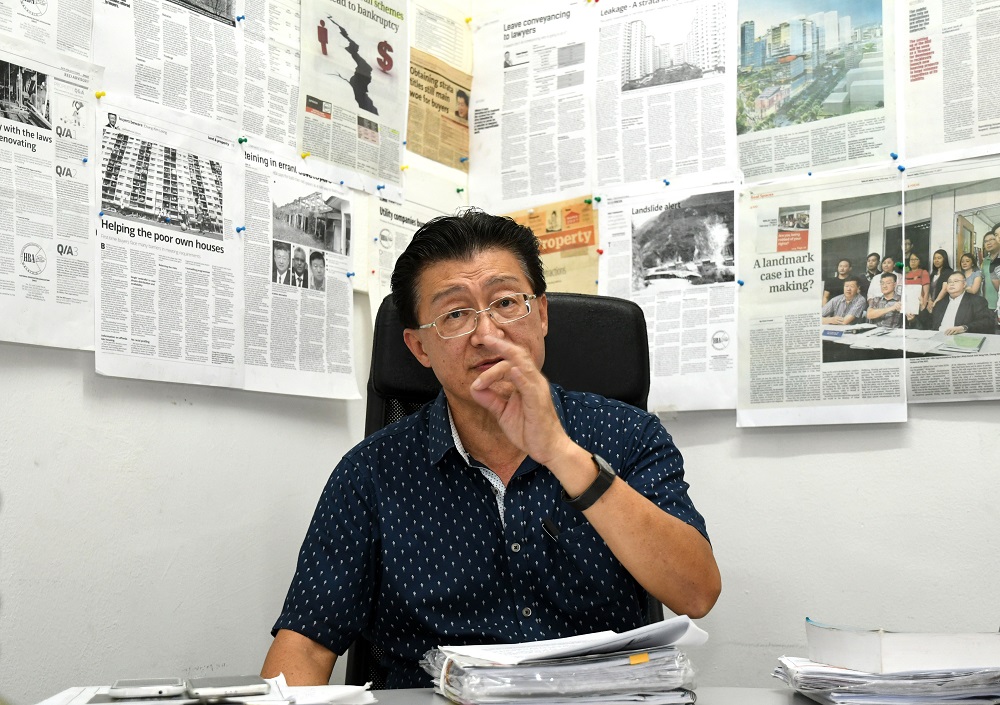
In early December 2020, it was reported on online media that the house of a cash purchaser in Lunas, Kedah was auctioned off by the financing bank because the progress payments she made to the developer allegedly never reached the bank.
When she sought to claim her single-storey home prior to the auction, she was informed that the redemption sum was about RM100,000, inclusive of interest and other charges. This is despite her showing the receipts of all the payments she had made to the developer.
Another incident happened six years ago in Taiping, Perak, where an old established laid-back community of mainly retirees found the roof over their heads nearly, and in some cases, actually, blown away.
All the purchasers had paid the developer in cash remittance without taking out end-financing loans, and had made their homes there for the past ten years.
Unbeknownst to the purchasers, the developer did not pay its bank to settle the bridging loan. Consequently, the developer’s charge remained and the indebtedness to the bank grew bigger and bigger.
Apparently, the bank had not been collecting payment of the loan from the developer, even as the developer was collecting the instalments from the purchasers, as provided in the schedule of the sale and purchase agreement (SPA).
Bank’s laxity towards non-performing loans
Only after 10 years of waiting did the bank realise the developer was not going to pay, and that foreclosure was unavoidable.
The bank then faced two enormous problems. Apart from the developer’s loan having ballooned over the years because of the bank’s laxity in not insisting on prompt payment, there was also the political repercussion — it meant the destruction of an well-settled community in a pleasant, idyllic town of retiree-purchasers. The case blew up to full public view the injustice of the SPA, the solicitousness towards developers in preference over purchasers on the part of the powers that be, and the embarrassment resulting from the bank’s ramifications.
Has the bank breached the fiduciary duty of care to the purchasers as the bridging loan financier to the defaulting developer?
The crux of the problem is that the housing and local government ministry (KPKT) has prescribed the SPA to allow developers to build houses with the instalments paid by purchasers from the day the SPA is signed. On top of this, and even more seriously, the developer is allowed to borrow from banks on the security of the purchasers’ properties.
Consequently, if the developer does not pay its loan — secured by the purchasers’ properties — the bank may foreclose and auction off the purchasers’ properties to recover the developer’s loan, even when purchasers have paid the price in full to the developer.
The developer suffers nothing — it has received the purchase price and pocketed it. The developer borrowed from the bank and gave the purchasers’ properties as collateral, and with foreclosure, the developer’s bank recovers its loan. In short, the developer owes no money to the bank, takes no risk and suffers no loss.
Purchasers always the victims
Eventually, it is the purchasers who lose — their houses are taken away; they have to settle their mortgage loans with increasing interests; and they are blacklisted, which means they can never borrow again and never buy houses again!
Is this fair to the buyer who never did anything wrong to the developer or to the developer’s bank?
In the Taiping housing fiasco, some of the purchasers had to buy their houses again at prices bloated by 10 years’ arrears of interest (i.e. pay the developer’s debt) to stave off foreclosure and to ensure they did not have to go without a roof over their heads in their old age.
Who is to blame for this sad state of affairs? We will consider each one in turn.

Although the most direct party at fault seems to be the developer, it is KPKT which has provided a standard form of SPA that allows this to happen.
Firstly, the SPA allows the developer to borrow money from a bank with a charge on the whole housing development land before it is subdivided and sold. This presale loan is referred to in the recitals to the SPA.
This is understandable as the developer needs money before sale. The result of this is that the purchaser buys an encumbered property but the purchaser is not told how much of the developer’s loan, if apportioned equally, is borne by each purchaser’s subdivided land (the redemption sum).
Upon signing of the SPA, the developer collects money from the purchaser, and should be able to make use of it to meet all the expenses of the development. However, after the subdivided land is sold, the developer’s indebtedness may continue to swell, and no effort is made to keep the purchaser informed about the increasing amount of the developer’s loan or the redemption sum.
The purchaser’s consent to the additional post-sale loans is taken for granted. In fact, the purchaser cannot withhold his or her consent as long as the purchaser receives some fig-leaf protection from the developer’s bank in the form of an undertaking not to foreclose.
What is the use of this undertaking to the purchaser? What the purchaser needs is the absolute undertaking by the developer and the developer’s bank that a purchaser who has paid the purchase price will not face foreclosure vis-à-vis the disclaimer(s). This would have helped the Taiping purchasers.
It is therefore a matter between the developer’s bank and the developer, with KPKT playing the proper protective role required by law, to ensure that such an undertaking or disclaimer is given by the developer’s bank to the purchaser.
This and other issues arising from the SPA have been raised by the National House Buyers Association (HBA) with the KPKT, but the latter has continued to procrastinate.
Not the concern of developer’s bank
To the developer’s bank, the loans to the developer on the security of the purchasers’ land is regarded as if it is the developer’s property entirely; and it is of no concern to the developer’s bank that some of the purchasers have paid the developer, which may or may not have forwarded these payments to its bank.
The financing bank’s concern is whether the whole loan has been settled by the developer-borrower. If not, the developer’s bank feels secure in the knowledge that the entire development land is available to recover its loans. So, as far as the bank is concerned, payments made by each purchaser to the developer is of no consequence. The transaction between the bank and the developer is the one that matters to the former.
Under the then (prior to 2015) SPA, there was also no control over how much the developer should be allowed to borrow, for what purpose, and by when it should be settled. Each loan to the developer increased the risk to the purchaser.

In the more recent past (after 2015), developers borrow only for the purpose of meeting the expenses of their housing projects. The developer is allowed to borrow twice only: once before sale and once after sale; and though the developer is not required to disclose the redemption sum, there is a very important safeguard — the developer has to settle the redemption sum to its bank before completion of construction so that at the end of the 24- or 36-month construction period, as the case may be, the property would be free from the developer’s encumbrances and safe from foreclosure. Even if the property was not transferred to the purchaser just as promptly, it would at least be safe from foreclosure.
Bank’s initiatives
Banks and financial institutions should take the initiative to recover progressively the loans given to developers.
Banks should stipulate as a condition for giving loans to their customers (developers), that the latter open its Housing Development Account (HDA) — a statutory requirement — with the same bank and require the instalments of the purchase price to be paid into it, and authorise the bank to deduct the developer’s loan by instalments from the HDA so that when the purchaser completes payment, the developer’s loan is also settled.
There is no such statutory requirement in the current SPA, so if it happens at all, it’s serendipity!
The HBA have had meetings with KPKT to propose changes to the current law and SPA to provide greater protection to purchasers within the framework of the sell and build. However, KPKT has rejected the proposal vis-a-vis pre-determination of redemption sums quantified in the SPA transaction, and that notwithstanding the Housing Development Act 1966 stating that it is inter alia for “the protection of the interests of purchasers…”
We will further discuss this in the second part of this article, on the new “protection” or whatever in lieu thereof vis-a-vis redemptions and disclaimers.
This is the first part of two articles by HBA. The second part will be published in the next issue.
Datuk Chang Kim Loong is the Hon. Secretary-General of the National House Buyers Association (HBA).
HBA can be contacted at: Email: [email protected]
Website: www.hba.org.my
Tel: +6012 334 5676
This story first appeared in the EdgeProp.my e-weekly on Jan 15, 2021. You can access back issues here.
Get the latest news @ www.EdgeProp.my
Subscribe to our Telegram channel for the latest stories and updates





